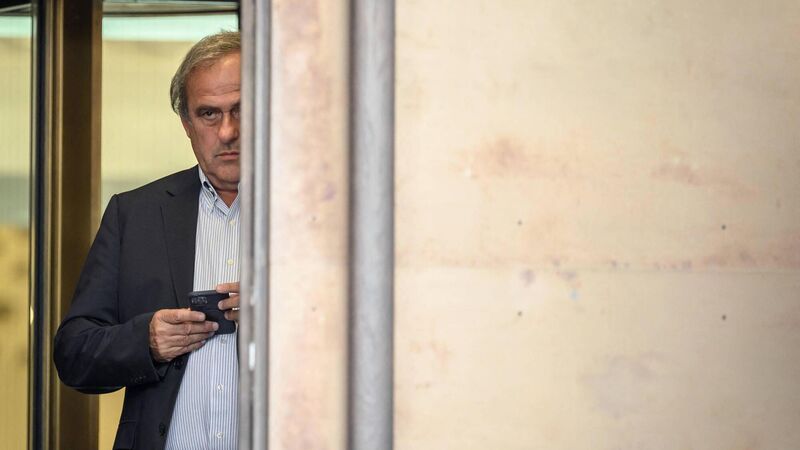Paul Rouse: The uglier side of the beautiful game playing out in a Swiss courtroom

Hidden figures: Former UEFA president Michel Platini at Switzerland's Federal Criminal Court Pic: Fabrice Coffrini/AFP via Getty Images
Michel Platini was a great player.
He was great for France and great for Juventus – so great that he won the Ballon d'Or three times in succession, 1983-1985.









